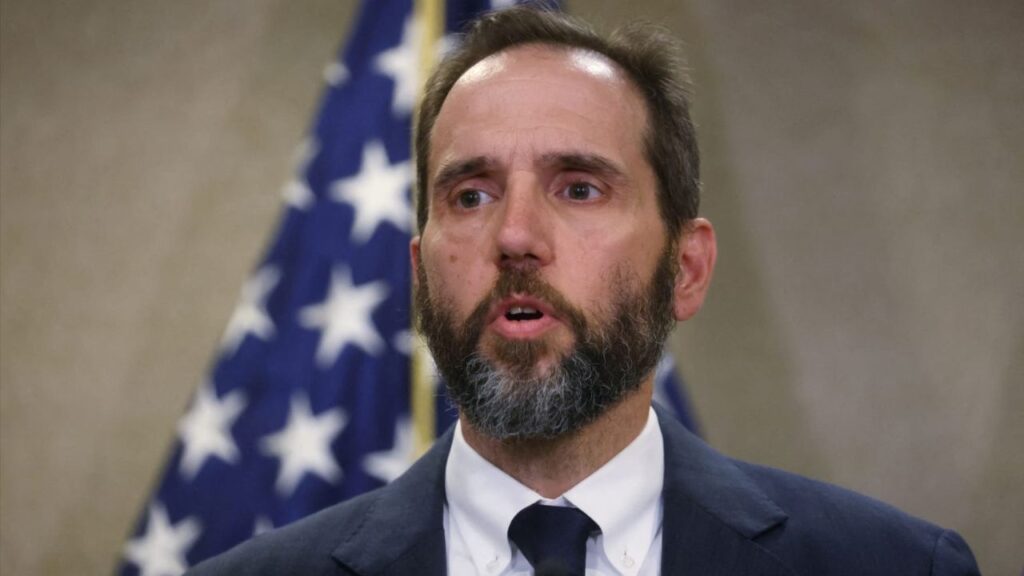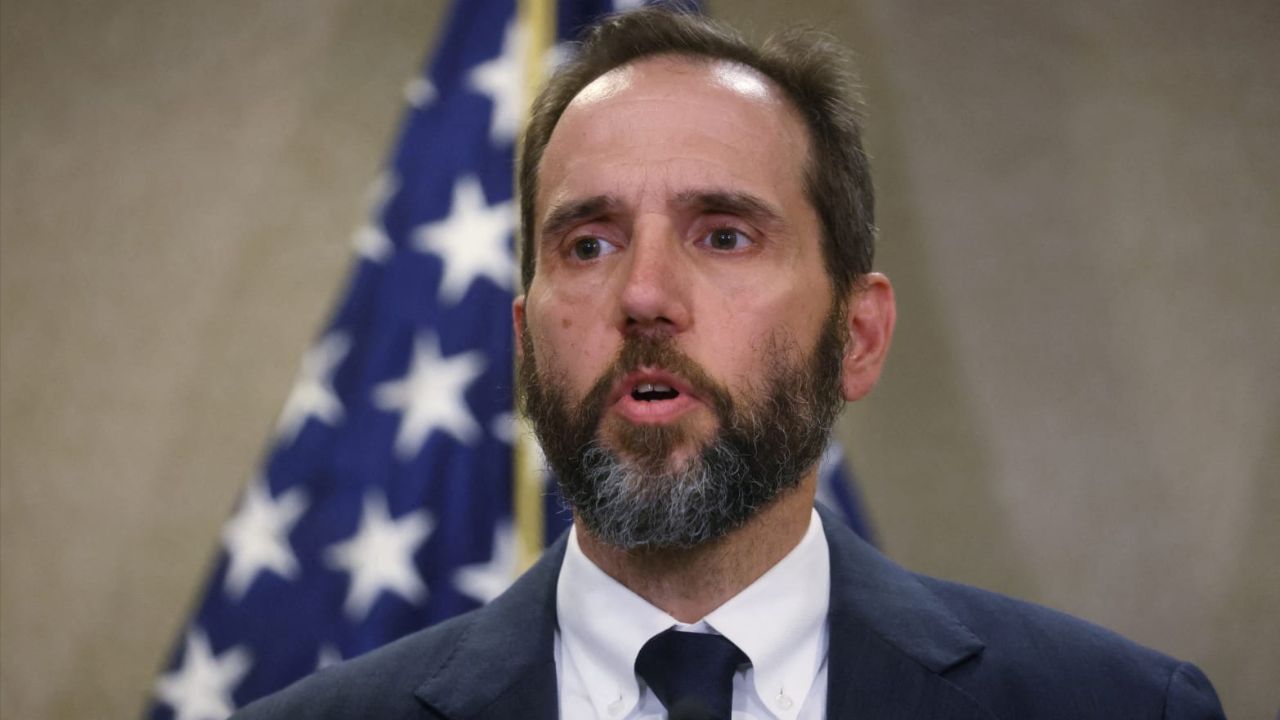Jack Smith, Trump Jan. 6 trial, DOJ delay, Trump prosecution, January 6th investigation, Special Counsel, presidential immunity, Merrick Garland, Supreme Court ruling, 2024 election
Explore the implications behind Special Counsel Jack Smith’s decision to delay the January 6th trial of former President Trump. This article delves into possible internal disagreements within the DOJ, strategic recalibrations, and the broader impact on the upcoming 2024 election and American justice.

What I Fear Forced Jack Smith to Delay Trump’s Jan. 6 Trial
The legal proceedings surrounding former President Donald Trump’s alleged election interference have been closely watched by the nation, with Special Counsel Jack Smith at the helm of the prosecution. Known for his aggressive approach, Smith’s recent request to delay the January 6th trial of Trump has raised eyebrows and sparked speculation. The delay, which came as a surprise to many, especially given Smith’s previous emphasis on the urgency of the matter, may suggest deeper issues within the U.S. Department of Justice (DOJ).
The Unexpected Delay
Jack Smith, a seasoned prosecutor, was expected to move quickly in the January 6th case, particularly in light of the looming 2024 presidential election. However, on the heels of an order from Judge Tanya Chutkan, who required Smith and Trump’s defense team to propose a trial schedule by August 9th, Smith instead requested additional time. This request was made under the guise of needing to assess the implications of a U.S. Supreme Court ruling related to presidential immunity.
The timing of this request is particularly notable. The new hearing date is set for September 5th, just 60 days before the election. Given Smith’s previous insistence on the public’s right to answers before the election, the delay seems uncharacteristic and has led to questions about what may have influenced this decision.
The Impact of the Supreme Court Ruling
The Supreme Court ruling in question likely played a significant role in the delay. The ruling, which favored Trump, is thought to have complicated Smith’s case by potentially immunizing some of Trump’s communications with the DOJ, regardless of the intent behind them. This decision sent the case back to Judge Chutkan to determine what evidence could be admitted at trial, a task that required swift action.
Both the D.C. Circuit and Judge Chutkan moved quickly following the Supreme Court’s decision, with both courts acting within a day of receiving the case. This rapid response makes Smith’s request for more time even more perplexing, as it suggests that the delay is not merely a matter of needing more time to assess the ruling.
Internal Disagreements Within the DOJ?
Having served within the DOJ’s leadership, I understand the bureaucratic processes that can sometimes slow down decision-making. Smith’s reference to needing “consultation with other Department of Justice components” likely involves multiple layers of review and discussion within the DOJ, including input from the office of the Deputy Attorney General, the Criminal Division, the Office of Legal Counsel, the Solicitor General, and the Attorney General’s office.
However, given the importance of the case and the amount of time that has already passed, it’s surprising that these consultations weren’t completed sooner. This raises the possibility of internal disagreements within the DOJ, particularly between Smith’s team and higher-ups like Attorney General Merrick Garland.
One potential point of contention could be the timing of the trial. Smith’s team may be eager to proceed quickly, especially with the election approaching, while Garland may be more cautious, concerned about the optics of prosecuting a former president so close to an election. Garland’s caution could be informed by the DOJ’s historical sensitivity to accusations of political bias, particularly following the controversy surrounding former FBI Director James Comey’s reopening of the Hillary Clinton email investigation just days before the 2016 election.
Possible Strategies Behind the Delay
The delay could also be part of a strategic recalibration by Smith and his team. There are several potential reasons for this:
- Re-tooling the Indictment: Smith may be considering adjustments to the indictment to make it more robust against potential legal challenges, particularly in light of the Supreme Court ruling. This could involve refining the charges or possibly indicting additional co-conspirators who were not initially named.
- Mini-Trial with Live Witnesses: Another possibility is that Smith is preparing for a “mini-trial” to determine which of Trump’s actions can be considered official acts subject to immunization. This process could involve live witnesses and, if conducted before the election, could bring to light new and damaging information about Trump’s actions.
- Analyzing the Supreme Court’s Impact on Obstruction Charges: The Supreme Court’s decision also impacts the definition of obstruction of justice under 18 U.S.C. section 1512 (c)(2). This section has been central to the charges against Trump, particularly those related to the violence on January 6th. Smith’s team may need time to reassess how this ruling affects their case and to reconfigure the charges if necessary.
The Long Game: Smith’s Post-Election Plans
Another theory is that Smith is playing the long game, with plans to pursue the Trump cases beyond the 2024 election and up until the next presidential inauguration. Under this scenario, if Trump loses the election, the additional time gained by the delay could be used to strengthen the case against him. However, if Trump wins, the delay could render the entire effort moot, as Trump would likely seek to halt any ongoing investigations or prosecutions against him.
This strategy would be a high-risk, high-reward approach, with significant implications for both the legal case and the broader political landscape. The delay could buy Smith time to solidify his case, but it also increases the risk that Trump could use the delay to his advantage, either by rallying his base or by seeking legal or political avenues to avoid prosecution.
Public Perception and the Role of Media
Public perception plays a critical role in high-profile cases like this one. The delay, coupled with the complex legal maneuvering involved, could lead to confusion or frustration among the public, particularly those who are eager for a resolution. Media coverage will be crucial in shaping public opinion, and Smith’s team will need to carefully manage the narrative to avoid the perception that the delay is a sign of weakness or uncertainty.
Legal commentators and analysts, like Norm Eisen and Marcy Wheeler, have already begun to weigh in on the implications of the delay, with some expressing disappointment and concern. These voices add to the growing chorus of questions about the DOJ’s handling of the case and what the delay might mean for the ultimate outcome.
Conclusion: The Stakes Are Higher Than Ever
The decision to delay the trial of former President Donald Trump is fraught with potential consequences. For Jack Smith and his team, the stakes could not be higher. The delay may provide valuable time to refine the case and ensure that all legal avenues are thoroughly explored, but it also opens the door to potential criticism, both from within the DOJ and from the public.
As the new hearing date of September 5th approaches, all eyes will be on the DOJ and Special Counsel Jack Smith. The decisions made in the coming weeks will have far-reaching implications, not just for the case against Trump, but for the broader questions of justice, accountability, and the rule of law in the United States.
In the end, whether the delay proves to be a wise strategic move or a costly misstep will depend on how effectively Smith and his team can navigate the legal and political challenges that lie ahead. What is clear, however, is that the outcome of this case will be a defining moment in American history, with the potential to shape the nation’s future for years to come.
Read More
- Imane Khelif & Sha’Carri Richardson Dazzle on Day 14 of Olympics
- Cate Blanchett Reveals Surprising Pay for Lord of the Rings Role A Hollywood Pay Equity Insight
- Sarah Hildebrandt’s Gold Win Follows Opponent’s Disqualification
- SpaceX and Northrop Grumman Successfully Launch Resupply Mission to ISS
